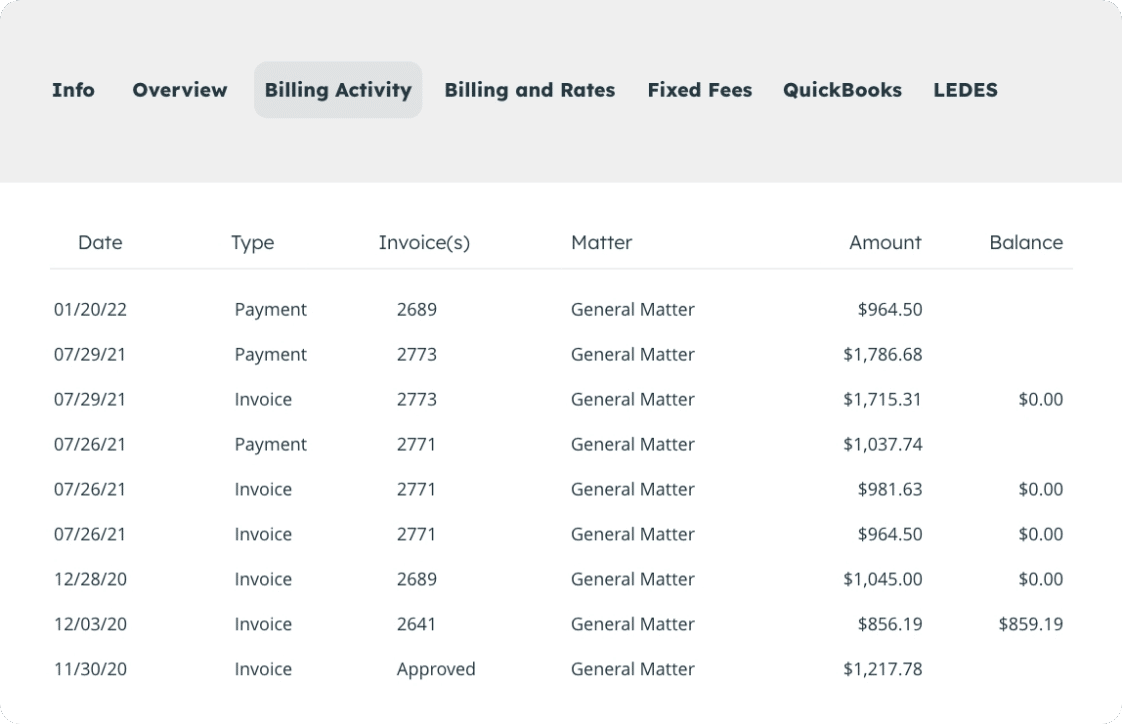
Have you been struggling with staying on track with billing errors in your law firm?
Are you beginning to worry that these errors may be the cause of lost revenue and — even worse — increasingly unhappy clients?
Do you wonder if cash flow would increase if undiscovered billing errors were uncovered and resolved?

If any of this sounds familiar then it’s time to consider implementing a legal e billing software system into your firm’s electronic management system that is created specifically to address the issue of billing errors head-on and the long-term consequences they create.
Without the right e billing legal software, your firm can end up with thousands of dollars in lost revenue and countless clients who leave the firm, disgruntled by something that could have been easily fixed with the right attention and the right resources to fix it.

Key Takeaways
- Law firms have different billing and accounting needs than most businesses and it’s important to make sure your accounting software system can support these needs.
- Without the right e legal billing software, there’s a good chance a firm will end up with lost revenue and lost clients (both of which could easily be prevented.)
- Creating a “tech stack” of practice management resources is the best way for a modern law firm to make sure that all its specific operational needs are met.
The advancements in billing technology over the last few decades have been rapid and trying to keep up with all the changes can make even the most tech-savvy people feel overwhelmed and intimidated.
Sometimes you may even feel you need a second degree in accounting or computer science just to understand it all!
But as an attorney or legal practice manager, your time is not best spent trying to stay on top of the latest software applications or accounting industry trends.

Instead, you need a software system that is designed specifically for the intricate differences between most business accounting and what is required for a typical law firm.
This is where a partner like LeanLaw can make all the difference for you and your firm.

What is LeanLaw?
LeanLaw is a cloud based accounting software company that was founded in 2016.
Created by legal professionals for legal professionals, LeanLaw is built on QuickBooks Online and is designed to make running a profitable law firm as straightforward and simple as possible for everyone involved.
Some of the main goals LeanLaw is able to achieve are these:
- Help law firms get paid faster with electronic billing (implementing such things as online invoice delivery, electric bills, online payment options, and automated reminders to clients.)
- Track financial profitability by attorney, client, or matter.
- Run compensation reports easily and from anywhere with only a click of a button.
- Allow attorneys and their practice managers to effectively engage in time tracking, billable hours, and all forms of matter management.
- Meet industry standards as well as state bar rules and regulations when it comes to trust accounting and accurately balance all trust accounts with three-way reconciliation.
- Assist in providing the structure to stay compliant with various billing guidelines set forth by your practice or the state in which you practice.

LeanLaw is not an all-in-one practice management software system. The legal professionals who created this accounting platform were tired of what the all-in-one traditional legal practice management software systems kept promising they could do…but never were able to.
Instead, LeanLaw recognized an area in law practice management that needed a major overhaul and they set out to do just that.
Today, law firms all over the United States have successfully implemented LeanLaw accounting software into the rest of their tech stack of software choices and have discovered a way to greatly improve the way their accounting system works.
By simplifying their accounting and billing processes with LeanLaw, small and mid sized law firms have been able to reduce the time and effort that is required to maintain accurate financial records as well as the time and effort it takes to generate reports and deal with the majority of their billing issues.
At the same time, they’ve been able to increase the automation and accuracy of much of their firm’s entire billing process which has also led to an increase in revenue and satisfaction for their staff and clients alike.
Ready to learn how all of this is possible? Let’s take a deeper dive into how LeanLaw can integrate into your practice’s tech stack and help your law firm achieve everything it wants going forward.

What Does the Term “Tech Stack” Mean?
When a business uses the term “tech stack” this usually refers to a collection of various computer software applications that are used by a company to manage its business.
The same definition holds (basically) true for law firms.
A typical tech stack for most legal practices is going to include a range of software and tools specific to the tasks that are completed regularly in a law firm.
Software for such tasks as document management, case management, communication, and matter management are all common needs for just about any legal practice, regardless of the size, location, or type of law that’s being practiced.
Schedule a demo
Let’s assume a law office is already using Microsoft 365 or GSuite applications for much of their day-to-day workflow operations and management.
Both of these office suite software systems are great for many of the multitudes of tasks that a law firm is faced with. From organizing and securing documents to communicating with clients and staff, both Microsoft 365 and GSuite are secure, robust, and easy to use.
In addition to these platforms, let’s say a firm is also using QuickBooks Online for its legal accounting needs. Again, there are great reasons why this highly popular and well-respected accounting platform is used by many law practices to help with its overall financial needs.
These are examples of the beginnings of a strong tech stack for any firm. But, they are not enough for a legal practice’s specific needs.
This is where LeanLaw can become part of a firm’s best-in-breed software solution.
When a firm has tools already in place for certain workflow tasks (communication, case management, and document storage) LeanLaw can then be used to customize certain workflow tasks — legal billing, timekeeping, billing and payment management, reporting and financial workflow automation, expense and time tracking, LEDES formatting, and trust accounting — all tasks that are unique to legal practice management.
By integrating LeanLaw into an already established tech stack, a law office can quickly move away from the traditional but cumbersome all-in-one type of legal practice management software that has been touted as the only way to manage a law firm in the past.
With the introduction of LeanLaw, your firm now has a complete practice management system that is built with your own specific needs in mind and creates an easy-to-use, interconnected, and powerful operating system.
The ultimate goal of a legal tech stack that includes LeanLaw accounting software as an important piece of the overall framework is to create a seamless and understandable workflow that will decrease time and costs and increase satisfaction and revenue.

What Are Some Common Billing Errors Made by Most Law Firms?
Though most firms are not intentionally setting out to make errors on their client invoices, it still happens more frequently than most attorneys or practice managers would like to admit.
From human error to miscommunication, errors on invoices and billing statements happen every day. Fortunately, with the right legal e billing software, much of this will be solved almost immediately.
Here are some of the most common billing errors that are made by most law firms before they implement a legal e billing software system:
- Timekeeping errors: These are the most common billing errors and can occur due to improper recording of time spent on a task, improper allocation of time, or not recording time at all.
- Incorrect billing rates: This can happen when different lawyers in the firm have different billing rates, or when a client is charged a rate that is different from what was agreed upon.
- Duplicative billing: This occurs when the same task is billed twice, either intentionally or unintentionally.
- Expense errors: These can happen when expenses are not properly tracked, or when expenses that should be billed to the client are not.
- Incorrect or missing descriptions: This occurs when the description of the work performed is missing or not detailed enough, making it difficult for clients to understand what they are being billed for.
- Unbilled time: This happens when time spent on a task is not billed, which can result in lost revenue for the law firm.
- Inconsistent billing: This can happen when billing practices vary across different attorneys in the firm or across different clients, resulting in confusion and potential billing errors.

What is Un-Billable Time?
Another big area of concern for most law firms is the time spent preparing bills and invoices is not considered billable time.
In an article recently published by Law Technology Today this is clearly laid out.
As the article states, because time spent preparing invoices and bills can not be added to a client’s statement, this time ends up being considered “lost” time and therefore time that can’t be added to a firm’s revenue.
But — as the article goes on to suggest — using software like LeanLaw that is specifically designed to address these types of tasks and automate them is a perfect solution for eliminating as many “un-billable” hours as possible in a firm’s daily operations.
Look to LeanLaw for Eliminating Billing Errors and Increasing Your Revenue
If you’re ready to rid your firm of some of the workflow tasks that are the most tedious while also being the most time consuming then LeanLaw is the perfect easy legal billing solution for you.
Some of the most basic tasks that LeanLaw can automate almost immediately are:
- Time tracking: With LeanLaw, time tracking is practically automated. All you have to do is update your LeanLaw calendar and and time entries will be automatically created.
- Invoice generation: Instead of manually creating invoices for each client, LeanLaw’s legal e billing software can automatically generate invoices based on time entries and billing rates.
- Payment processing: LeanLaw can make it effortless for your clients to make online payments and will update the client’s account balance automatically, eliminating any chance of miscommunication about an invoice or fee.
- Late payment reminders: Automated reminders can be set up to send reminders to clients about overdue payments, reducing the need for manual follow-up or large account receivables to need ongoing attention from your accounting department, thus reducing staff time on tedious (and frustrating) tasks.
- Trust accounting: Trust accounting can be automated with LeanLaw’s unique software and will make tracking deposits and withdrawals from trust accounts seamless, while also generating trust account reports and ensuring billing guidelines and compliance with ethical rules and regulations are always met.
If you’re ready to learn more about how LeanLaw’s legal e billing system can help your law firm reduce billing errors and ultimately increase cash flow, take a moment to request a free demo today.
LeanLaw can allow your attorneys and staff the ability to refocus their time and efforts on providing excellent legal services and ultimately improving client satisfaction…a good win/win for everyone.



